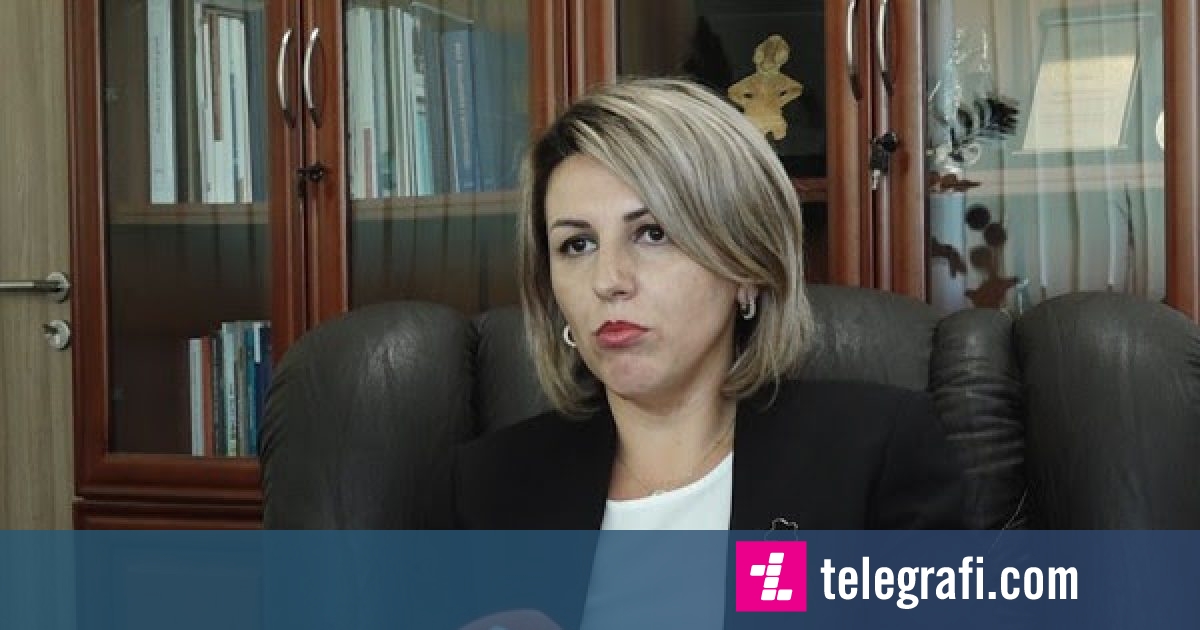The President of the Basic Court in Prishtina, Albina Shabani-Rama, stated that the possible vetting of judges would damage and overload the institution she runs.
She agrees to undergo this process as the president of the Basic Court, but she is against that the judges of Pristina also go through the same process.
In an interview for KosovaPress, Shabani-Rama also spoke about the large number of cases that are pending for consideration and the need to increase the capacities of the court that he leads.
The accumulation of cases remains a challenge for the Basic Court of Pristina, and it fears that their number may increase even more if the judges undergo vetting.
"I am not in favor of vetting because I consider that it would only do more harm, I speak for my court, because vetting is a process that takes time and I consider that it will only harm and add more collection of subjects.
On the other hand, in our court over 90% are new judges who do not even have 5 years of work experience, all of them have gone through verification processes and various processes.
I don't consider it necessary, I consider that the most necessary thing is to help the court, to raise the capacities of this court and then see the results.
As for the other part, for presidents and members of the Council, for me it is fine, I have no comment, if the government foresees and proposed it and the legislator votes for it, it is fine, I consider that our part did not cause too much of an obstacle in the trial, but for the judges it is a dangerous process if we go into that part because we have to harm the citizen the most", says Shabani-Rama.
She states that there is already a trend of increasing cases, mainly of a civil nature.
Last year alone, she said that they received over 11,000 new cases, and the growth trend emphasizes that it is continuing this year as well.
"Since last year, we have seen an increasing trend of cases of all kinds, but with special emphasis on the civil nature and mainly cases that come from public workers of educational, medical institutions, but also other institutions such as the police and the Correctional Service that are a consequence of the non-implementation of the collective contract on the part of the government but also on the part of the Municipalities and other institutions.
And in this aspect, the number has increased a lot, so that in the last year we have doubled the increase in the number of cases in contentious-civil procedure, where we have received more than 11 thousand cases, but this year the same trend of increasing cases continues. otherwise, even in Criminal and Administrative and in the Department of Serious Crimes, we have a tendency to increase incoming cases", she said.
Judge Shabani-Rama considers the large number of cases accumulated over the years as the main challenge for this court.
"The main challenge of this court is the large number of cases accumulated over the years, which is made even more difficult by the large number of incoming cases in relation to the small number of judges we have.
This year, the Basic Court of Pristina has had a large departure of judges, because some of them have been promoted and some of them have moved to the Commercial Court, which is expected to be completed next month.
This has somehow damaged the Basic Court of Pristina a lot, we have an imbalance, on one side we have accumulated cases, a large number of increasing cases, while on the other side we also have a small number of judges, but also other administrative staff or supportive.
Fortunately, we recently received 20 new judges, for us it was very good news, we expect them to start work within 6 months...
This number of judges does not even cover the number of them who have left this year.. Our request and mine as the president of this court is to fulfill the number of judges because it is a need and it must be done continuously". she emphasized.
About 80,000 cases are pending in the Basic Court of Pristina.
In addition to the large number of subjects, Shabani-Rama lists the identification of addresses as a challenge.
"We have approximately 80,000 pending cases, so I would say that it is a number of 30 to 50 (judges) that is needed beyond the foreseen structure, so we will be able to remove this backlog and for a while stabilize the situation with cases because otherwise there will be a long delay in cases if we continue with this trend that we have, either with the departure of judges, or with the arrival of cases and the accumulation (of) old cases", she says.
The President of the Basic Court in Pristina told KosovaPress that already over 99% of the targeted cases are in process.
"With my decision as president, they have all been transferred to the Special Department, I can tell you that more than 99% of them are at work, they are in the process, with the exception of some who recently returned to resettlement, the process is continuing because they are more complicated cases and it means longer time is needed for treatment to reach a decision", emphasized Shabani-Rama.
Albina Shabani-Rama says that the number of domestic violence cases has increased in recent years, but added that there are no delays in the treatment of these cases.
In order to reduce the number of civil cases awaiting treatment in the Basic Court of Pristina, the first of this institution, he said that they are promoting the mediation procedure.
